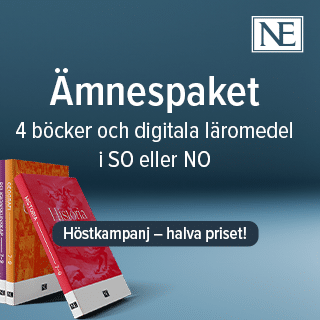Change, Institutions, and International Organisations: Essays on the English School of International Relations
Charlotta Friedner Parrat har forskat om den engelska skolans förståelse av internationell ordning, utifrån den engelska skolidén av internationella institutioner och deras förändringar.
Charlotta Friedner Parrat
Docent Sofia Näsström, Uppsala universitet Professor Stefano Guzzini, Uppsala universitet
Professor Nicholas J.Wheeler, University of Birmingham
Uppsala universitet
2017-10-07
Change, Institutions, and International Organisations: Essays on the English School of International Relations
Statsvetenskapliga institutionen
Change, Institutions, and International Organisations: Essays on the English School of International Relations
The overall topic of this thesis is the English School understanding of international order, which I approach specifically by analysing the English School idea of international institutions and their change. The purpose is to develop the theory in a meta-theoretically conscious and coherent way. The three essays in this volume are independent in relation to each other, yet in some ways cumulative. Essays I and II aim to address primarily the question of how to conceptualise the current international order of multilateralism and international organisations. Essay I uses the empirical issue of UN reform to formulate one English School conceptualisation of international order, building specifically on the School’s central theme of international institutions. Essay II theoretically develops the tools of the English School for capturing how international institutions, according to English School theory the fundaments of international order, might change. Essay III approaches the meta-theoretical question of how change itself is understood in the English School, and how different theoretical readings of what we might mean by change give rise to different approaches to the normative question of what might be improvement in the international order. I argue that an internally coherent understanding of change in international society should emphasise change in institutions, made intelligible by ex-post narratives which contribute to establishing the discursive connection between practices and their normative legitimation, and guided by a sustained normative debate on the nature of improvement. This understanding of change signifies a much-needed addition to the English School toolbox, and brings a promise of a meta-theoretical grounding of the theory. In addition, it opens for similar theoretical inquiries into other IR theories.
Relaterade länkar

Fritidshem
 Åk F–6
Åk F–6 Matematikångest
 Åk 4–Vux
Åk 4–Vux 






